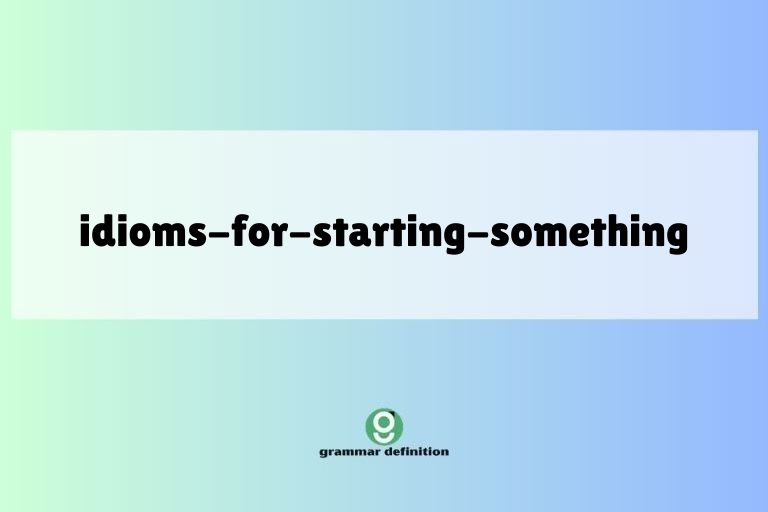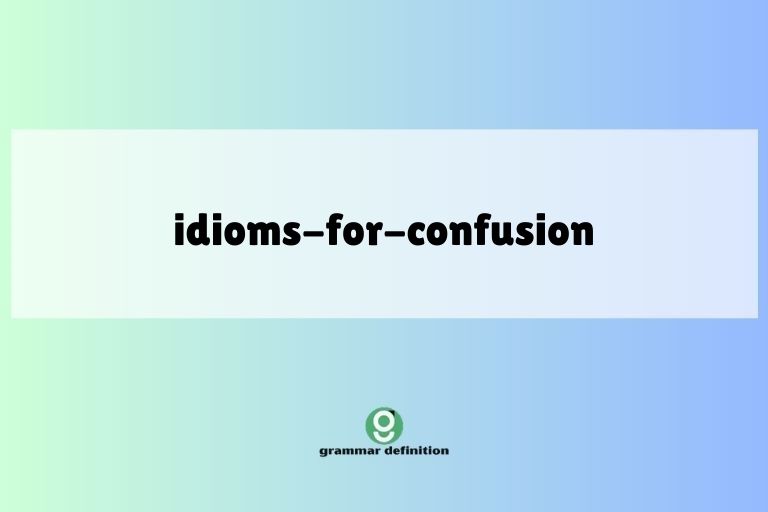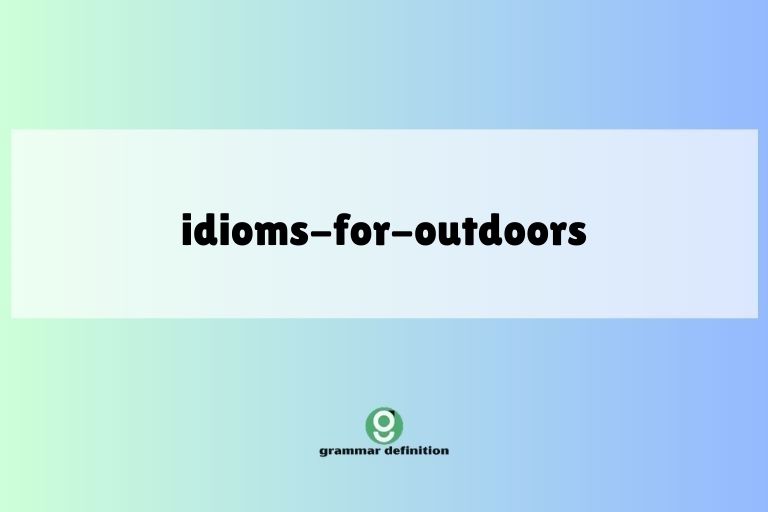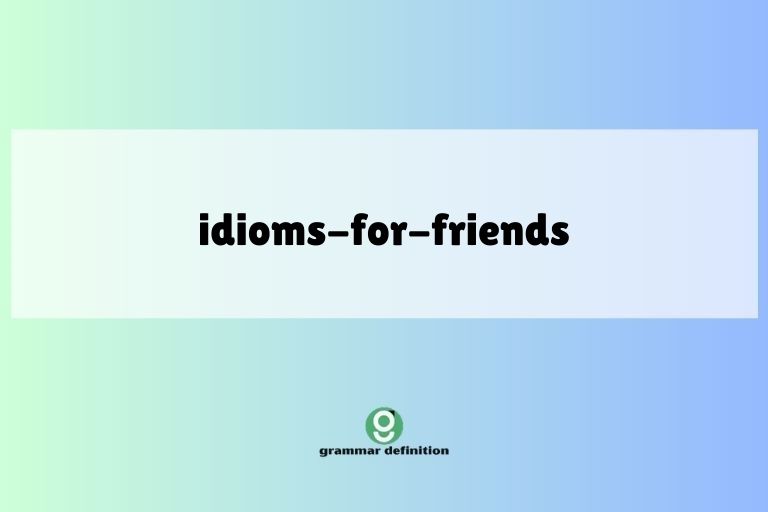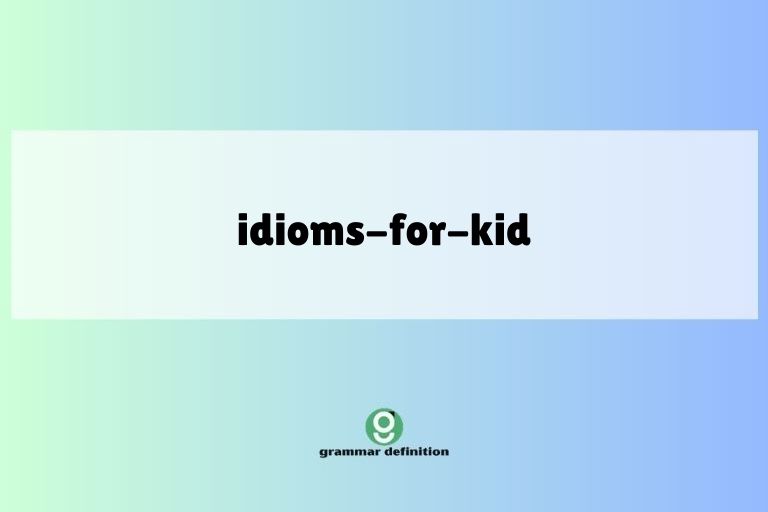Idioms for Hungry: A Comprehensive Guide
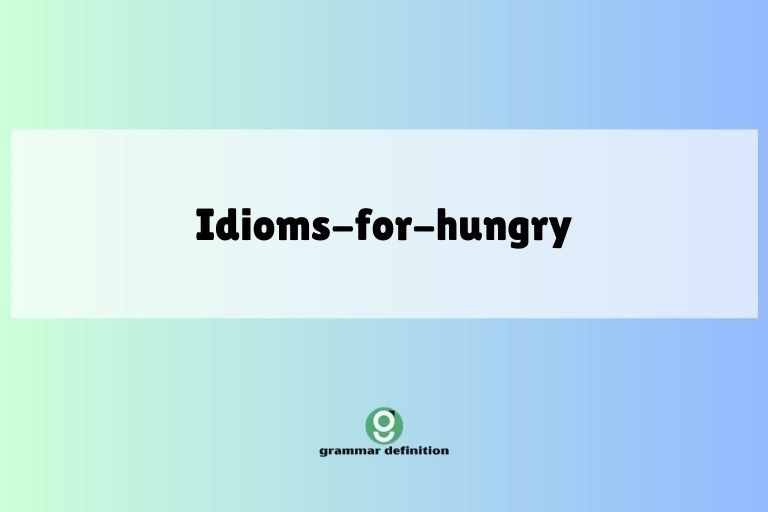
English is rich with idioms, and expressions related to hunger are no exception. Understanding these idioms not only enhances your vocabulary but also allows you to grasp the nuances of everyday conversations.
This article provides a comprehensive guide to idioms related to feeling hungry, offering definitions, examples, usage rules, and practice exercises. Whether you’re an English language learner or simply looking to expand your linguistic toolkit, this guide will help you master the art of expressing hunger in a colorful and idiomatic way.
Table of Contents
- Introduction
- Definition of Idioms for Hungry
- Structural Breakdown of Idioms
- Types and Categories of Hunger Idioms
- Examples of Idioms for Hungry
- Usage Rules for Hunger Idioms
- Common Mistakes with Hunger Idioms
- Practice Exercises
- Advanced Topics: Cultural Nuances
- Frequently Asked Questions
- Conclusion
Definition of Idioms for Hungry
An idiom is a phrase or expression whose meaning cannot be understood from the literal meanings of its individual words. Instead, the phrase has a figurative meaning that is known through common use.
Idioms for “hungry” are phrases that express the state of being hungry in a more descriptive, imaginative, or humorous way than simply saying “I am hungry.” These idioms add color and personality to language, making communication more engaging and relatable. They often reflect cultural attitudes towards food and hunger, and their meanings can vary depending on the context.
Hunger idioms can be classified based on the intensity of hunger they express, the imagery they evoke, and the situations in which they are typically used. Understanding the nuances of these idioms can help you choose the most appropriate expression for a given situation.
For instance, “I could eat a horse” expresses extreme hunger, while “I’m feeling peckish” suggests a mild appetite.
Structural Breakdown of Idioms
Idioms, by their very nature, defy straightforward structural analysis. They are often fixed expressions where the individual words contribute less to the overall meaning than the phrase as a whole.
However, we can observe some common structural patterns in idioms related to hunger.
Many hunger idioms use metaphors, comparing hunger to something else, such as an animal (“hungry as a bear”) or a physical action (“I could eat a horse”). Other idioms use similes, explicitly comparing hunger to another state (“hungry like the wolf”).
Still others employ hyperbole, exaggerating the feeling of hunger for emphasis (“I’m starving!”).
The grammatical structure of hunger idioms can vary widely. Some are simple phrases (“dying of hunger”), while others are complete sentences (“My stomach is eating itself”).
The key is to recognize the phrase as a unit of meaning rather than analyzing it word by word.
Types and Categories of Hunger Idioms
Hunger idioms can be categorized based on the intensity of hunger they express, the imagery they use, and the context in which they are appropriate. Here’s a breakdown of some common categories:
General Hunger
These idioms express a general feeling of hunger without specifying the level of intensity. They are suitable for everyday conversations and informal settings.
Extreme Hunger
These idioms convey a strong or urgent feeling of hunger. They are often used to emphasize the need for food or to express discomfort caused by hunger.
Subtle Hunger
These idioms suggest a mild appetite or a slight feeling of hunger. They are often used to politely indicate that you would like to eat something without being overly assertive.
Examples of Idioms for Hungry
This section provides an extensive list of idioms related to hunger, categorized by the level of hunger they express. Each idiom is accompanied by a definition and example sentence to illustrate its meaning and usage.
General Hunger
The following table provides examples of idioms that express a general feeling of hunger. These idioms are suitable for a wide range of situations and can be used in both formal and informal settings.
| Idiom | Definition | Example Sentence |
|---|---|---|
| Feeling peckish | Slightly hungry; wanting a small snack. | I’m feeling a bit peckish; let’s grab a quick bite. |
| A bit hungry | A mild state of hunger. | I’m a bit hungry; maybe we should order some pizza. |
| Could use a bite | Willing to eat something; slightly hungry. | I could use a bite; that walk really worked up my appetite. |
| My stomach is rumbling | Your stomach is making noises because you are hungry. | My stomach is rumbling; I think it’s time for lunch. |
| Ready for food | Prepared to eat; anticipating a meal. | I’m ready for food after that long meeting. |
| Having a craving | Experiencing a strong desire for a particular food. | I’m having a craving for chocolate; I need something sweet. |
| My stomach is talking to me | A humorous way of saying you are hungry. | My stomach is talking to me; let’s find a restaurant. |
| In need of sustenance | Requiring food to maintain strength and energy. | After hiking all day, we were definitely in need of sustenance. |
| Time for a snack | An indication that it is time to eat a small amount of food. | It’s time for a snack; I’m starting to feel a little weak. |
| My hunger is kicking in | The feeling of hunger is starting to become noticeable. | My hunger is kicking in; I can’t concentrate on this anymore. |
| Looking forward to dinner | Anticipating the evening meal with pleasure. | I’m really looking forward to dinner; I’m starving! |
| Appetite is building | The feeling of hunger is gradually increasing. | My appetite is building; the smell of that food is making me hungrier. |
| A little empty | Feeling slightly hungry or lacking food in your stomach. | I’m feeling a little empty; maybe some soup would help. |
| Slightly famished | Mildly hungry; needing food soon. | I’m slightly famished; let’s find somewhere to eat quickly. |
| Requiring nourishment | Needing food to stay healthy and energetic. | After the workout, my body is requiring nourishment. |
| Feeling a need for food | Experiencing a general desire for something to eat. | I’m feeling a need for food; what do you suggest? |
| Ready to eat | Prepared and willing to consume a meal or snack. | I’m ready to eat; I haven’t had anything since breakfast. |
| Wanting some grub | Informal term for wanting food. | I’m wanting some grub; let’s hit up that new burger joint. |
| Eager for a meal | Anticipating a meal with enthusiasm. | I’m eager for a meal after finishing this project. |
| Ready to chow down | Informal expression for being ready to eat heartily. | After the game, we’re ready to chow down. |
| Having the munchies | Craving snacks, often used when referring to cannabis use. | After watching the movie, I’m having the munchies. |
| My stomach is growling | Similar to “My stomach is rumbling,” indicating hunger. | My stomach is growling; I need to eat something soon. |
| A bit peckish | A mild feeling of hunger. | I’m a bit peckish; let’s grab a snack. |
Extreme Hunger
The following table provides examples of idioms that express extreme hunger. These idioms are often used for emphasis or to convey a sense of urgency.
| Idiom | Definition | Example Sentence |
|---|---|---|
| I could eat a horse | Extremely hungry; able to eat a large amount of food. | I could eat a horse; I haven’t eaten all day. |
| Starving | Extremely hungry; suffering from hunger. | I’m starving! When are we going to eat? |
| Famished | Extremely hungry; suffering from hunger. | After the marathon, I was famished and ate two pizzas. |
| Ravenous | Extremely hungry; greedy for food. | The kids were ravenous after playing outside all afternoon. |
| Dying of hunger | Extremely hungry; feeling like you are going to die if you don’t eat. | I’m dying of hunger! Can we please stop for food? |
| Empty as a drum | Feeling extremely empty or hungry. | My stomach is as empty as a drum; I need to eat something substantial. |
| Hollow leg | The ability to eat a lot without getting full. | He must have a hollow leg; he’s eaten three plates already. |
| Could eat the bark off a tree | So hungry that you would eat anything, even something unappetizing. | I’m so hungry I could eat the bark off a tree! |
| My stomach is eating itself | Feeling extreme hunger that is causing discomfort. | My stomach is eating itself; I need food now! |
| Fit to eat the devil | Extremely hungry and in a bad mood because of it. | I’m so hungry I’m fit to eat the devil; let’s get some food. |
| As hungry as a bear | Very hungry, like a bear coming out of hibernation. | I woke up as hungry as a bear this morning. |
| As hungry as a wolf | Very hungry, like a wolf hunting for prey. | After skipping lunch, I was as hungry as a wolf. |
| My stomach thinks my throat is cut | A humorous way of saying you are extremely hungry. | My stomach thinks my throat is cut; let’s get some food quickly. |
| I’m wasting away | Feeling extremely weak and hungry. | I’m wasting away; I haven’t eaten in two days. |
| Peckish doesn’t cover it | Understates the feeling of hunger, implying it’s much more intense. | “Peckish” doesn’t cover it; I’m absolutely starving! |
| Could devour anything | Willing to eat anything, no matter how unappetizing. | I’m so hungry I could devour anything right now. |
| On an empty stomach | Having not eaten for a significant period. | I’ve been working on an empty stomach all day. |
| One could faint from hunger | Feeling so hungry that one might lose consciousness. | I’m so hungry one could faint from hunger. |
| Feeling like eating a feast | Desiring a large and elaborate meal. | I’m feeling like eating a feast tonight. |
| Ready to eat anything in sight | Expressing extreme hunger where one is not picky about food. | I’m so hungry I’m ready to eat anything in sight. |
| Hungry enough to eat nails | An exaggeration to express extreme hunger. | I’m hungry enough to eat nails; let’s get pizza. |
| Starved | Severely lacking food; extremely hungry. | We were starved after hiking all day. |
| Could murder for food | A hyperbolic expression of extreme hunger. | I could murder for food right now; I skipped lunch. |
Subtle Hunger
The following table provides examples of idioms that express a subtle or mild feeling of hunger. These idioms are often used to politely indicate that you would like to eat something without being overly assertive.
| Idiom | Definition | Example Sentence |
|---|---|---|
| Feeling a bit peckish | Slightly hungry; wanting a small snack. | I’m feeling a bit peckish; maybe we should grab a small snack. |
| A little hungry | A mild state of hunger. | I’m just a little hungry; I don’t need a full meal. |
| Could go for something | Would like to eat something, but not urgently. | I could go for something, maybe a piece of fruit. |
| Thinking about food | Having mild thoughts about eating. | I’m just thinking about food; I’m not really hungry. |
| Appetite is stirring | The feeling of hunger is just beginning. | My appetite is stirring; maybe I’ll have a light snack. |
| A touch of hunger | A very slight feeling of hunger. | I have just a touch of hunger; I’ll wait until dinner. |
| A slight craving | A mild desire for a particular food. | I have a slight craving for ice cream. |
| Not quite full | Feeling almost satisfied but still wanting a little more. | I’m not quite full; maybe just a small dessert. |
| Room for a little more | Having a small amount of space left in your stomach. | I have room for a little more; I’ll take a small piece of cake. |
| A light appetite | A small or delicate appetite. | I have a light appetite today; I’ll just have a salad. |
| Feeling like a nibble | Wanting to eat a small amount of food. | I’m feeling like a nibble; maybe some crackers. |
| A small hunger | A minimal level of hunger. | I have a small hunger; I’ll just eat an apple. |
| Just a bit hungry | Expressing a minimal degree of hunger. | I’m just a bit hungry; no need for a big meal. |
| Having a small appetite | Indicating a limited desire for food. | I’m having a small appetite today, thanks. |
| A tiny craving | Expressing a very mild desire for a specific food. | I have a tiny craving for something salty. |
| Lightly peckish | Slightly hungry, but not urgently. | I’m lightly peckish; I’ll grab a yogurt. |
| A hint of hunger | A subtle indication of being hungry. | I have a hint of hunger; I’ll eat a banana later. |
| Not very hungry | Expressing a low level of hunger. | I’m not very hungry; thanks for offering. |
| A taste of something | Wanting to eat a very small portion. | I’d just like a taste of something sweet. |
| A small bite | Desiring a small amount of food. | I could go for a small bite of chocolate. |
| A little snack would be nice | Suggesting that a small snack would be appreciated. | A little snack would be nice right now. |
| Feeling a mild hunger | Experiencing a gentle sensation of being hungry. | I’m feeling a mild hunger; I’ll have some tea. |
| A small desire for food | Expressing a slight wish to eat something. | I have a small desire for some fruit. |
Usage Rules for Hunger Idioms
Using idioms correctly requires understanding their specific meanings and the contexts in which they are appropriate. Here are some general rules for using hunger idioms:
- Consider the audience: Some idioms are more informal than others. Choose idioms that are appropriate for your audience and the situation.
- Pay attention to intensity: Use idioms that accurately reflect the level of hunger you want to express. Avoid exaggerating or understating your hunger unless you are doing so intentionally for humorous effect.
- Be aware of cultural differences: Some idioms may not be understood or may have different meanings in different cultures. If you are speaking to someone from a different cultural background, it may be best to use simpler language.
- Use idioms sparingly: While idioms can add color to your language, using too many can make your speech sound unnatural or forced.
Common Mistakes with Hunger Idioms
One common mistake is taking idioms literally. Remember that idioms have figurative meanings, so you should not interpret them word by word.
Another mistake is using idioms in inappropriate contexts. For example, it would be strange to say “I could eat a horse” in a formal business meeting.
Here are some examples of common mistakes and their corrections:
| Incorrect | Correct | Explanation |
|---|---|---|
| I am literally starving. | I am starving. | “Starving” is already an exaggeration, so “literally” is unnecessary and incorrect. |
| I have a horse to eat. | I could eat a horse. | The first sentence is a literal statement, while the second is an idiom expressing extreme hunger. |
| I’m feeling very peckish for a full meal. | I’m feeling peckish; I’ll just have a snack. | “Peckish” implies a mild hunger, so it is contradictory to say you are feeling peckish for a full meal. |
| My stomach is eating itself, so I will have a salad. | My stomach is eating itself; I need something substantial! | “My stomach is eating itself” implies extreme hunger, so a salad might not be sufficient. |
| I’m as hungry as a bear, so I will have a small apple. | I’m as hungry as a bear, so I will have a large meal. | “As hungry as a bear” implies great hunger, so a small apple is not appropriate. |
Practice Exercises
Test your understanding of hunger idioms with the following exercises. Choose the best idiom to complete each sentence.
Exercise 1: Fill in the Blanks
Choose the correct idiom from the list to complete each sentence.
- a) Could eat a horse
- b) Feeling peckish
- c) My stomach is rumbling
- d) Dying of hunger
- e) As hungry as a wolf
| Question | Answer |
|---|---|
| 1. I skipped lunch, so now I’m __________. | d) Dying of hunger |
| 2. I haven’t eaten since breakfast, I __________. | a) Could eat a horse |
| 3. I’m just __________, so I’ll grab a small snack. | b) Feeling peckish |
| 4. After hiking all day, we were __________. | e) As hungry as a wolf |
| 5. __________; I think it’s time for lunch. | c) My stomach is rumbling |
| 6. I worked out all morning, I __________. | a) Could eat a horse |
| 7. I’m only __________; I don’t need a full meal. | b) Feeling peckish |
| 8. After fasting, they were __________. | d) Dying of hunger |
| 9. The children are __________ after playing outside. | e) As hungry as a wolf |
| 10. __________ and it’s so embarrassing. | c) My stomach is rumbling |
Exercise 2: Matching
Match the idiom with its definition.
| Idiom | Definition | Answer |
|---|---|---|
| 1. Ravenous | a) Slightly hungry | 1. b) |
| 2. Feeling peckish | b) Extremely hungry; greedy for food | 2. a) |
| 3. Could use a bite | c) Willing to eat something; slightly hungry | 3. c) |
| 4. Stomach is eating itself | d) Feeling extreme hunger that is causing discomfort | 4. d) |
| 5. Hollow leg | e) The ability to eat a lot without getting full | 5. e) |
| 6. Fit to eat the devil | f) Extremely hungry and in a bad mood because of it | 6. f) |
| 7. Wasting away | g) Feeling extremely weak and hungry | 7. g) |
| 8. One could faint from hunger | h) Feeling so hungry that one might lose consciousness | 8. h) |
| 9. Could devour anything | i) Willing to eat anything, no matter how unappetizing | 9. i) |
| 10. A taste of something | j) Wanting to eat a very small portion | 10. j) |
Exercise 3: True or False
Determine whether the following statements about hunger idioms are true or false.
| Statement | Answer |
|---|---|
| 1. “Feeling peckish” means you are extremely hungry. | False |
| 2. “I could eat a horse” means you are mildly hungry. | False |
| 3. “My stomach is rumbling” indicates that you are hungry. | True |
| 4. “Dying of hunger” is a literal statement. | False |
| 5. “As hungry as a wolf” implies extreme hunger. | True |
| 6. “Could use a bite” implies extreme hunger. | False |
| 7. “Stomach is eating itself” means you are slightly hungry. | False |
| 8. “Having the munchies” means you are craving snacks. | True |
| 9. “Ready to chow down” means you are ready to eat heartily. | True |
| 10. “A bit peckish” is a statement of extreme hunger. | False |
Advanced Topics: Cultural Nuances
The use and understanding of idioms can vary significantly between cultures. What might be a common expression in one culture could be completely foreign or even offensive in another.
When using idioms related to hunger, it’s essential to be aware of these cultural nuances, especially when communicating with people from different backgrounds.
For example, some cultures have a more direct approach to expressing hunger, while others may use more subtle or indirect language. In some cultures, it might be considered impolite to openly express extreme hunger, while in others, it’s perfectly acceptable.
Understanding these cultural differences can help you avoid misunderstandings and communicate more effectively.
Furthermore, the specific foods and culinary traditions of a culture can also influence the idioms used to describe hunger. For instance, an idiom that references a particular type of food might only be understood by people familiar with that food.
Therefore, it’s always a good idea to consider your audience and the context when using hunger idioms.
Frequently Asked Questions
Here are some frequently asked questions about idioms for “hungry”:
- What is an idiom?
An idiom is a phrase or expression whose meaning cannot be understood from the literal meanings of its individual words. Instead, the phrase has a figurative meaning that is known through common use. Idioms add color and personality to language, making communication more engaging and relatable.
- Why is it important to learn idioms?
Learning idioms is important because they are frequently used in everyday conversations, literature, and media. Understanding idioms allows you to grasp the nuances of language and communicate more effectively. It also helps you to better understand and appreciate the culture associated with the language.
- How can I learn idioms more effectively?
There are several ways to learn idioms more effectively. One way is to read widely and pay attention to the idioms that are used in different contexts. Another way is to use flashcards or other memory aids to memorize idioms and their meanings. You can also practice using idioms in your own speech and writing to reinforce your understanding.
- Are idioms the same in all languages?
No, idioms are not the same in all languages. Idioms are often specific to a particular culture or language, and their meanings may not translate directly. In fact, attempting to translate an idiom literally can often result in a nonsensical or humorous statement.
- How do I know when to use an idiom?
The best way to know when to use an idiom is to familiarize yourself with its meaning and the contexts in which it is appropriate. Consider your audience, the situation, and the level of formality when deciding whether to use an idiom. If you are unsure, it is often best to use simpler language.
- What’s the difference between “starving” and “feeling peckish”?
“Starving” indicates extreme hunger, often used hyperbolically to emphasize the need for food. “Feeling peckish” suggests a mild appetite or a slight feeling of hunger, indicating a desire for a small snack rather than a full meal.
- Is it okay to use hunger idioms in formal settings?
Some hunger idioms are suitable for formal settings, while others are more appropriate for informal conversations. Idioms like “requiring nourishment” or “in need of sustenance” can be used in formal contexts. However, idioms like “I could eat a horse” or “fit to eat the devil” are generally too informal for professional environments.
- How can I avoid misusing hunger idioms?
To avoid misusing hunger idioms, always double-check the meaning and context of the idiom before using it. Pay attention to how native speakers use the idiom and try to emulate their usage. If you’re unsure, it’s better to use a more straightforward expression to avoid confusion.
Conclusion
Mastering idioms related to hunger can significantly enhance your English communication skills. By understanding the meanings, usage rules, and cultural nuances of these expressions, you can express yourself more vividly and connect with others on a deeper level.
Remember to practice using these idioms in your own speech and writing to reinforce your understanding and build confidence. With consistent effort, you’ll be able to navigate the world of English idioms with ease and fluency.
Continue to explore and learn new idioms to further expand your vocabulary and improve your overall language proficiency. Pay attention to how native speakers use idioms in different contexts and try to incorporate them into your own conversations.
With practice and dedication, you can become a master of English idioms and communicate with greater clarity, precision, and flair. Keep learning, keep practicing, and keep exploring the fascinating world of language!

